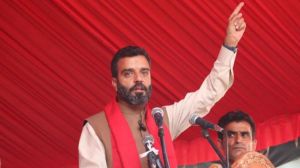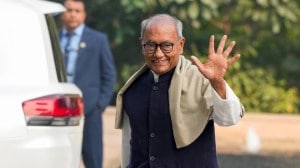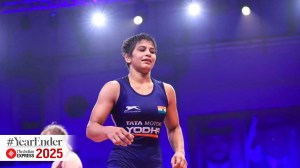Fatal instincts
The Antony committee has given the Con-gress leadership plenty to think about but whether major long-term changes will follow or merely a ...

The Antony committee has given the Con-gress leadership plenty to think about but whether major long-term changes will follow or merely a few quick fixes remains an open question. It was called an 8220;introspection8221; committee and asked to examine the causes of the party8217;s worst ever election performance. Judging by leaks rather than official briefings from a would-be media-friendly Congress, the committee did cite failures of judgment by the high command. Exactly which ones are not known but among those failures must surely be Sonia Gandhi8217;s over-hasty decision to let the last Vajpayee government fall and inability to accommodate powerful regional leaders like Sharad Pawar and P.A. Sangma; the political miscalculations of Pranab Mukherjee and others in Haryana and Bihar and Salman Khurshid8217;s in UP. These and other causes of the election debacle point to the need for some fundamental changes in the party structure and to the absence of a clear political vision.
Considering all that, the outcome of the CWCmeeting called to discuss the Antony report is bound to disappoint Congress supporters. The CWC leapt to accept many practical if obvious recommendations selecting election candidates well in advance, galvanising front organisations which is good as far as it goes. But no decisions were taken on the bigger issues of reorganising the CWC and AICC and on political strategy; at the very least more rounds of discussions are called for after members have had a chance to study the full report. The election debacle has given the Congress reason and time to give more thought to three major and contentious subjects, two old and one more recent: devolution of power within the organisation, the party8217;s stance on economic reform and the new bid to reach out to 8220;intellectuals and the urban middle class8221;.
To take the last one first, the Congress must be bereft of all ideas if, as reported, it can do no better in these hard times than try to imitate Britain8217;s New Labour. Whatever Tony Blair8217;s middle way actually meansand most people in Britain have a hard time understanding it it would surely not be easily transplanted in this country. If, on the other hand, what the Congress intends is to mobilise support from the urban beneficiaries of economic deregulation and reform since 1991 a large, powerful and articulate constituency Congress leaders will first have to come out unequivocally in favour of further economic reform. That should not be hard to do.
The conflict between Manmohan Singh allegedly pro-reform and Rajesh Pilot allegedly pro-poor is false. There is no dichotomy necessarily between pursuing higher economic growth rates and abolishing poverty and this is a vital qualification as long as governments pursue appropriate policies. As Chandrababu Naidu has shown, appropriate policies win votes and the confidence of private investors and business people. The tough one is devolution of power because real as distinct from nominal devolution goes completely against the culture of Congress netas. The partyshould know that unless things change, all the old mistakes will be repeated.
- 01
- 02
- 03
- 04
- 05































